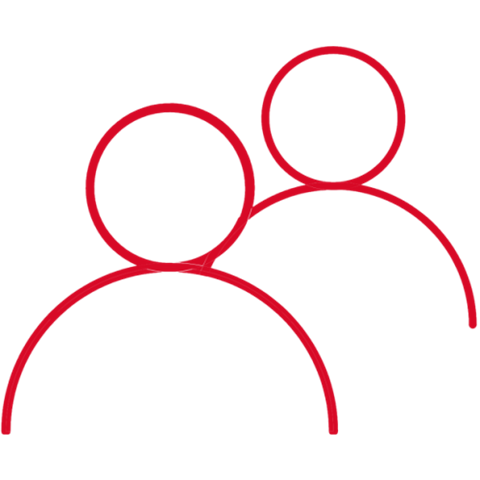In the first episode of season 3 of The Next Round, AAR’s marketing inspiration podcast, practice lead Robin Charney spoke to Benazir Barlet-Batada, who may have the most fun job in the industry: Marketing Director for Cadbury, Green and Blacks and Maynards Bassett With a career spanning 17 years in marketing, Benazir has led an effort which has successfully positioned Cadbury as the UK’s favourite, biggest and fastest-growing chocolate brand. Click on the links below to listen, or read on for some highlights from the discussion...
You can listen to the full episode on:
Does brand history shape the type of marketing you do?
Benazir was unequivocal about this - brand history absolutely shapes marketing. In recent years, Cadbury has rediscovered its principles by re-engaging with its past. The marketing team have taken the inner truths of the company and put them into the brand, not only in marcomms with more focus and clarity, but culturally within the business too.
John Cadbury wanted to create a company that would give back to the community around him, and there’s a clear generosity of spirit that was there right from day one. This history is really embedded both as an internal culture but also in what Cadbury shares with the world externally.
Cadbury have embraced the spirit and principles of generosity that the brand has historically embodied - from offering drinking chocolate as an alternative to gin to donating their fresh milk to the government for wartime rations - in their creative advertising (starting with the iconic 2017 campaign featuring a child paying for a bar of dairy milk for her mother using nicknacks), but also practically; during the Covid19 pandemic, the brand have been donating media space to local businesses rather than using it themselves.
What are the biggest changes in the FMCG sector at the moment?
Benazir pointed out that the biggest challenge facing marketers is the same as it always has been: as Darwin noted, it’s not the strongest of the species that survives, nor the most intelligent, but the most adaptable. Marketing needs to make sure it has the right organisational culture, workplace culture, and the ability to test, evolve, and learn.
Barlet-Batada also drew attention to some of the changes and challenges the sector is facing at the moment; high fat, salt, and sugar legislation is incoming, as is increased focus on wellbeing and sustainability, along with consumers holding big brands to account. As marketeers, there’s a need to always be on the lookout for opportunities in these kind of trends, as well as making bold moves when required to push your brand into new spaces.
Can you talk us through your creative repositioning - how did you do it, and how did you bring people along with you?
The key thing is to create a vision, and consistently communicate that vision with purpose, passion, energy, and conviction. Then, importantly, you need to enable others to contribute, to create a sense of ownership. Benazir acknowledged that, as many of us know, change isn’t easy, and we need to celebrate the wins en route and create a sense of momentum.
As a Historical parallel: the Bournville estate, when it first opened, asked its workers for ideas, and innovation or efficiency suggestions for the factory - offering sizeable returns if suggested concepts were taken up. It was revolutionary and visionary at the time, and while it may seem straightforward today, the principles stand: set a vision, and empower people. Make them the change makers.
What makes a great agency/brand partnership?
Success with an agency requires all the traits of a good friendship. Trust, openness, honesty, vulnerability; having shared goals and a mutual understanding of the strategy - of how we’re going to get there - is key. Also, a willingness to challenge each other, be okay with it, and embrace the difficult conversations. You need a healthy willingness to push each other on, and acknowledge each other's contributions when it all comes good.
Benazir noted that David Oglivy famously said that ‘clients get work that they deserve’, so it’s vital that we ask our marketers to invest in those relationships, in knowing their brands, their consumers, to make sure they do great briefings, and remain involved all of the way. Keep discussing, debating, and embracing. It’s a really fun part of the role, and it’s hugely important.
Do you have any personal learnings from the pandemic in how you do your marketing, or manage your teams?
In 2020, generosity was really important. From supporting the NHS, to supporting each other, and in terms of business, people went back to trusted brands that they’ve always loved, so Cadbury had a strong year - Benazir pointed out that comfort eating, if we’re honest, was something many of us indulged in!
But Cadbury did experience its own challenges; demand became huge, and they had to contend with supply chain issues, make changes, and rationalise their portfolio. The result, however, was a stronger cross-functional team, and the impact as a big business and a big brand was that Cadbury did very well.
But they were really conscious that a big dent was left by smaller companies who could no longer trade, and had to close their doors. Cadbury decided to help, and so when small businesses were forced to close physical premises, the brand offered them the opportunity to sell via their established e-commerce platforms. Cadbury’s advertising was also changed to hero their brands and products, becoming their ‘for the love of chocolate’ campaign; as part of this campaign, smaller businesses were promoted in the same spaces as the iconic brand itself, helping them to make it through this difficult time. In that context, Benazir noted that Cadbury found that it pays to be more generous.



